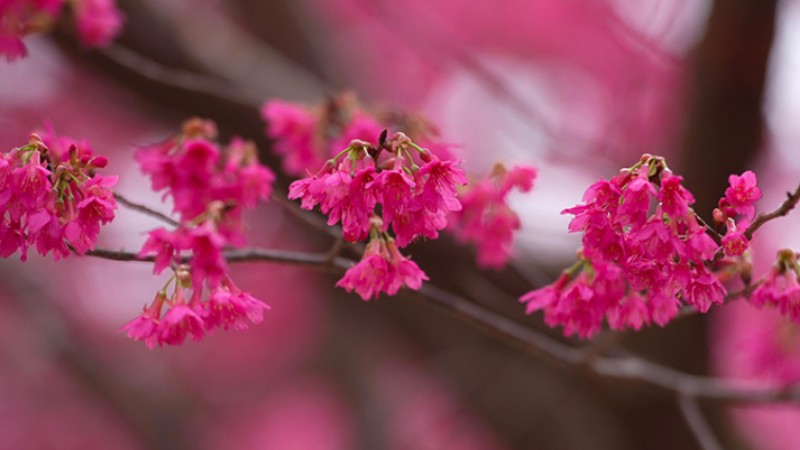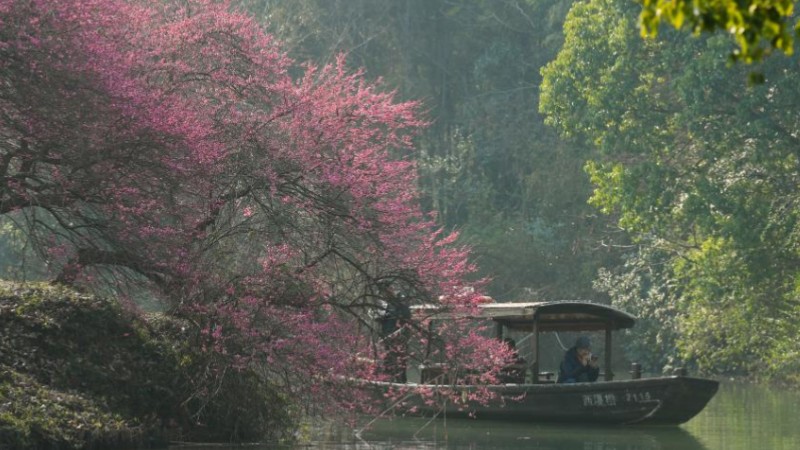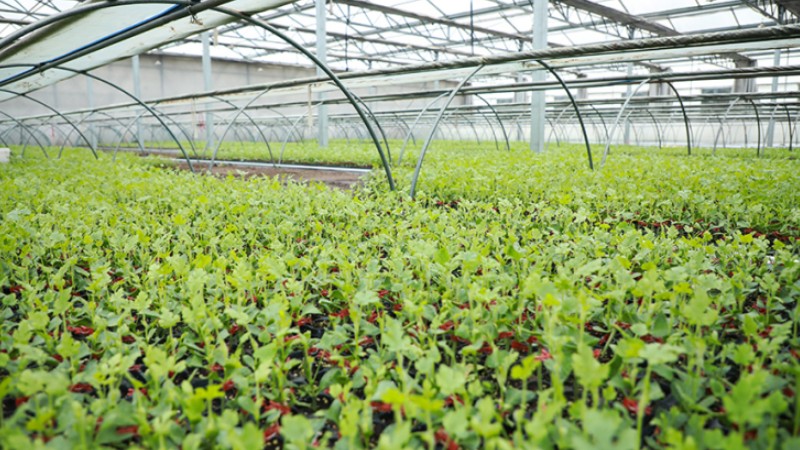China on way to becoming world leader in wetland conservation cause
China has made vigorous ecological progress, strengthened the protection and restoration of wetlands and promoted high-quality development in the cause of wetland conservation since the 18th National Congress of the Communist Party of China in 2012, witnessing continuous improvement in its wetland ecology.
Over the past 10 years, the central government has allocated more than 16.8 billion yuan (about $2.46 billion) for wetland conservation and undertaken over 3,400 protection projects.
China now boasts 56.35 million hectares of wetlands, and has established a national wetland protection system consisting mainly of national parks, wetland nature reserves, and wetland parks. China has 13 cities on the list of 43 international wetland cities worldwide, the most of any country.

Aerial photo taken on Nov. 2, 2020 shows a view of a dawn redwood forest in Zhanghe Reservoir of Jingmen City, central China's Hubei Province. (Xinhua/Peng Qi)
Flocks of mandarin ducks were recently spotted foraging and resting at the Zhanghe River National Wetland Park in Jingmen city, central China’s Hubei Province.
Such a sight was unimaginable more than 10 years ago, when chemical plants there caused serious water pollution, according to Chen Hui, head of the management and protection station of the national wetland park.
Chen explained that Jingmen city has intensified efforts to improve the environment by shutting down a batch of polluting enterprises in accordance with the law, removing net cages used for fish farming, closing restaurants in the protection zone for drinking water sources, and including 120,000 mu (8,000 hectares) of forest land surrounding the Zhanghe River into its key non-commercial forest protection project.
Remarkable results have been achieved in the protection and restoration of the Zhanghe River wetland thanks to multiple targeted measures. The wetland was listed as a national wetland park in 2014 and designated as a wetland of national importance six years later.
The surface water quality in the Zhanghe Reservoir area of the national wetland park has reached Grade II in the country’s five-tier water quality system, said Sun Zujun, deputy head of the forestry bureau of Jingmen, adding that peach blossom jellyfish, nicknamed “panda in the water”, and species under first-class state protection in China such as Chinese mergansers, are frequently seen there.
While protecting the wetland ecology, China has also promoted the steady development of the green industry through the appropriate use of wetlands and their resources.
Home to 4 percent of the world’s wetlands, China has met the diverse demands of one-fifth of the world’s population for wetlands, contributing to their conservation and wise use.
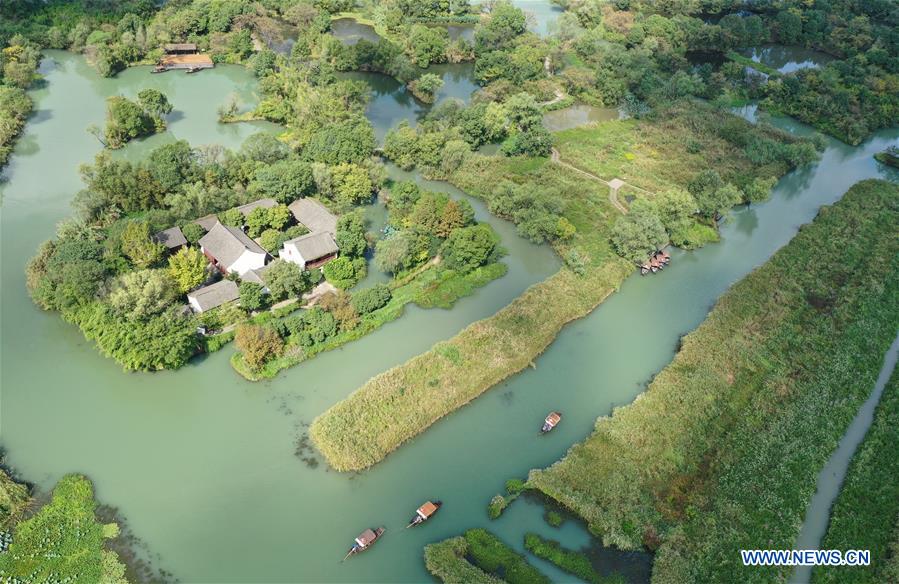
Aerial photo taken on Oct. 8, 2020 shows sightseeing boats in Xixi National Wetland Park in Hangzhou, east China's Zhejiang Province. (Xinhua/Weng Xinyang)
Open to the public since 2005, the Xixi National Wetland Park in Hangzhou, capital city of east China’s Zhejiang Province, is the country’s first national wetland park. By advancing protection and development in parallel, the national wetland park has explored a path that puts ecology first while pursuing green development.
“We need to preserve the originality, integrity and continuity of wetlands while making rational use of them based on effective protection and restoration,” said Chen Lin, director of the ecological culture research center at the national wetland park. It has restored 45 natural and cultural tourist attractions by containing pollution, diverting water to the park and restoring vegetation. In addition, it has launched folk activities and developed ecotourism, creating job opportunities for its original inhabitants and sharing the fruits and benefits of wetland conservation.
According to statistics, the Xixi National Wetland Park has received more than 5 million visitors annually since its opening, with the accumulative revenue reaching 2.4 billion yuan, significantly driving the sustainable economic and social development of its surrounding areas.
China has fulfilled its duties under the Ramsar Convention on Wetlands, an intergovernmental agreement dedicated to the conservation and rational use of wetland ecosystems, since it become a party to the convention in 1992, and has taken an active part in global ecological governance.
On the occasion of this year’s World Wetlands Day on Feb. 2, 18 wetlands in China were designated as wetlands of international importance, including the Yanqing Wild Duck Lake in Beijing, the nine turns and 18 bends on the Greater Khingan Range in northeast China’s Heilongjiang Province, and Baima Lake in Huai’an city, east China’s Jiangsu Province.
Following the expansion, the number of wetlands of international importance in China now comes to 82, covering an area of 7.647 million hectares, the fourth largest in the world.
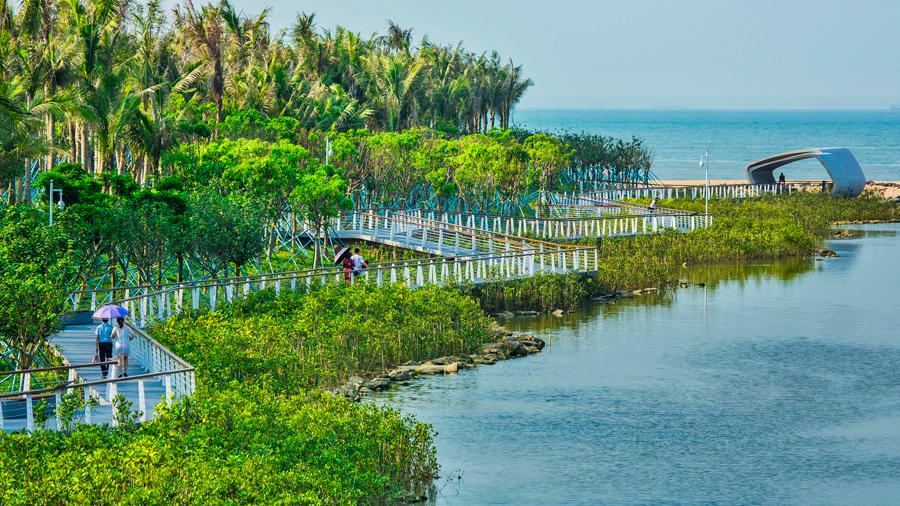
Visitors admire Wuyuanhe National Wetland Park, which boasts rich bio-diversity, in Haikou, south China's Hainan Province. (Photo/China Daily)
On the same day, the National Forestry and Grassland Administration (NFGA) released the results of the monitoring of the ecological status of wetlands of international importance in China in 2022.
The results showed that the ecological status of the wetlands of international importance in China is generally stable, and their biodiversity has been enriched, with 2,391 plant species documented. In addition, remarkable results have been achieved in the protection and restoration of China’s wetlands, and degraded wetlands in Heilongjiang, Hubei, Shandong and Hainan provinces have been effectively restored.
Musonda Mumba, secretary-general of the Ramsar Convention, expressed her appreciation for China’s continuous fine-tuning of its legal and policy framework and for strengthening domestic wetland protection and management, hoping that China will lead the development of global wetland protection in the next three years.
China aims to increase its wetland protection rate to 55 percent by 2025, while increasing the number of wetlands of international importance and national importance by 20 and 50, respectively, according to a plan for wetland protection for the 2022-2030 period issued by the NFGA and the Ministry of Natural Resources.
Photos
Related Stories
- Tourists enjoy plum blossoms in Xixi National Wetland Park in Hangzhou, E China
- Fruits of wetland restoration efforts blossom in Tianjin
- China plays crucial role in wetland restoration
- Glimpse of Haizhu Wetland on central axis of Guangzhou, S China
- Millions of migratory birds winter at wetlands in E China’s Jiangsu
- A glimpse of Haizhu Wetland in south China
- Swans play water in wetland in Xinjiang
- View of Beidagang Wetland in north China's Tianjin
- Shenzhen strives to build itself into international wetland city
- World Wetlands Day 2023 Celebration in China held in Hangzhou
Copyright © 2023 People's Daily Online. All Rights Reserved.






